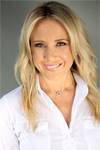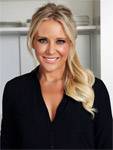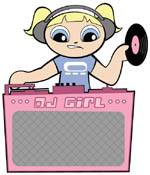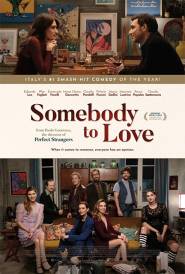Susie Burrell The Best Training Foods Interview
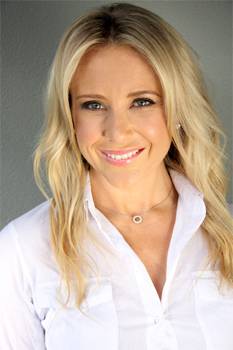
Susie Burrell The Best Training Foods Interview
If you train regularly, at the gym, with a PT or by yourself, the last thing you want is for your nutrition post training to be undoing all of your hard work. Similarly, if your goal is to bulk up and help build muscle tissue, what you eat immediately after your session is crucial to ensure you reach your training goals. So if you are unsure about what you should be eating when to satisfy your workout goals, here is your ultimate guide to help you choose the best thing to eat after exercise.
Before your workout
It is a common belief that not eating before your workout will help to maximise fat metabolism, but unless you are going for a light walk, you will train harder for longer and as such, burn more fat in total if you take a small amount of carbohydrate (20-30g) on board before your workout. Carb rich options that are easy to digest include a banana or a couple of plain crackers.
For morning workouts
As a general rule of thumb, the sooner you eat in the morning, the better it is for your metabolism. This means that even though you may have been taught to wait an hour until you eat after training to optimise fat loss, it is actually better to eat straight away to fuel your depleted muscles and get your metabolism pumping. If your goal is fat loss, a protein rich breakfast with 1-2 serves of carbohydrates should fuel you for at least another 2-3 hours. Good options include a protein shake with a banana, eggs on wholegrain toast or Greek yoghurt with fruit and a couple of tablespoons of wholegrain cereal. If your goal is to gain lean tissue, aim for a 500-600 calorie meal such as an omelette with brown rice or wholegrain toast as well as a protein shake with milk or fruit to boost your calorie, protein and carbohydrate intake to support muscle growth.
For afternoon workouts
Afternoon workout sessions can be tricky as on one hand you do not want to spoil your dinner by overeating after training but sometimes it can still be an hour or two until we eat our next meal. If you will be eating your evening meal within an hour of your session ending, and your goal is fat loss, you are fine to wait until dinner to eat. For hard sessions of 30 minutes or more, include at least half a cup of cooked carbohydrate such as sweet potato, corn, quinoa or brown rice at this meal to help you recover adequately before your next session. If it will be another hour or two until dinner, to avoid experiencing ravenous hunger an hour or so after your session, grab a light 150-200 calorie high protein snack with a small amount of carbs to keep your blood glucose levels regulated. Good options include a nut based snack bar, a banana and a handful of nuts or a couple of wholegrain crackers and a slice of cheese. On the other hand, if your goal is muscle gain, regardless of when you will next eat, adding another 300-400 calorie meal immediately post training will help to provide extra calories and carbs crucial for muscle growth. Good options include a shake with milk and a banana for some carbs, brown rice with tuna or a chicken sandwich.
For evening workouts
Exercising after your evening meal has a number of metabolic benefits including helping to reduce post meal blood glucose levels but often we are then left with hunger right before bed. As not to undo all of your hard work but overeating at this meal, if you are peckish before bed and your goal is fat loss keep your snacks small and protein rich. Good options include a small serve of 10-20 nuts, a couple of crackers with a slice of cheese or a banana. On the other hand, if your goal is to gain muscle mass, another 200-300 calorie meal before bed will support weight gain. Try Greek yoghurt and a banana or a couple of slices of toast with tuna or cottage cheese.
Before your workout
It is a common belief that not eating before your workout will help to maximise fat metabolism, but unless you are going for a light walk, you will train harder for longer and as such, burn more fat in total if you take a small amount of carbohydrate (20-30g) on board before your workout. Carb rich options that are easy to digest include a banana or a couple of plain crackers.
For morning workouts
As a general rule of thumb, the sooner you eat in the morning, the better it is for your metabolism. This means that even though you may have been taught to wait an hour until you eat after training to optimise fat loss, it is actually better to eat straight away to fuel your depleted muscles and get your metabolism pumping. If your goal is fat loss, a protein rich breakfast with 1-2 serves of carbohydrates should fuel you for at least another 2-3 hours. Good options include a protein shake with a banana, eggs on wholegrain toast or Greek yoghurt with fruit and a couple of tablespoons of wholegrain cereal. If your goal is to gain lean tissue, aim for a 500-600 calorie meal such as an omelette with brown rice or wholegrain toast as well as a protein shake with milk or fruit to boost your calorie, protein and carbohydrate intake to support muscle growth.
For afternoon workouts
Afternoon workout sessions can be tricky as on one hand you do not want to spoil your dinner by overeating after training but sometimes it can still be an hour or two until we eat our next meal. If you will be eating your evening meal within an hour of your session ending, and your goal is fat loss, you are fine to wait until dinner to eat. For hard sessions of 30 minutes or more, include at least half a cup of cooked carbohydrate such as sweet potato, corn, quinoa or brown rice at this meal to help you recover adequately before your next session. If it will be another hour or two until dinner, to avoid experiencing ravenous hunger an hour or so after your session, grab a light 150-200 calorie high protein snack with a small amount of carbs to keep your blood glucose levels regulated. Good options include a nut based snack bar, a banana and a handful of nuts or a couple of wholegrain crackers and a slice of cheese. On the other hand, if your goal is muscle gain, regardless of when you will next eat, adding another 300-400 calorie meal immediately post training will help to provide extra calories and carbs crucial for muscle growth. Good options include a shake with milk and a banana for some carbs, brown rice with tuna or a chicken sandwich.
For evening workouts
Exercising after your evening meal has a number of metabolic benefits including helping to reduce post meal blood glucose levels but often we are then left with hunger right before bed. As not to undo all of your hard work but overeating at this meal, if you are peckish before bed and your goal is fat loss keep your snacks small and protein rich. Good options include a small serve of 10-20 nuts, a couple of crackers with a slice of cheese or a banana. On the other hand, if your goal is to gain muscle mass, another 200-300 calorie meal before bed will support weight gain. Try Greek yoghurt and a banana or a couple of slices of toast with tuna or cottage cheese.
Interview with Susie Burrell, Australian Bananas Ambassador and Dietitian
Question: Why is it important that we eat pre and post training?
Susie Burrell: One of the most significant predictors of performance is having adequate fuel stores in the muscles - this predicts how hard and how long we will be able to perform at a high intensity level for. Failing to eat before training means that we run the risk of starting a session without optimal fuel on board leaving us prone to fatigue, tiredness and an inability to perform at our best. When it comes to refuelling after a session, once a muscle has had its fuel stores depleted, there is a brief time frame we have to refuel to help prepare the muscles to perform again. This is why eating something that contains both protein for muscle recovery and carbohydrates for fuel recovery is ideal immediately after a session.
Question: What would you suggest we eat pre-training? And, what about post-training?
Susie Burrell: Pre-training you want a readily digested source of fuel - for this reason a banana is a perfect pre-training snack. Post training session you need both carbs and proteins so a protein shake with a banana, peanut butter on bread or some greek yoghurt with fruit are all great choices.
Question: Should we be eating before an early morning training session? And if so, how long before a weights or cardio session should we eat?
Susie Burrell: It generally comes down to what an individual an tolerate but anywhere from 30-60 minutes is ideal and for early morning sessions, something is better than nothing so a bite of a banana or 1/2 a piece of toast is fine if that is what you can tolerate.
Question: Do our gym goals affect whether we should be eating pre and post training?
Susie Burrell: Not really unless you have an extra long or extra intense session then you may need extra carbs, and if your goal is weight gain you may also need a recovery snack plus a meal in the hour after a weights session.
Question: Why are bananas such a good pre and post training snack?
Susie Burrell: Bananas are the perfect pre and post training snack as they are easy to eat, come in their own wrapper, are quickly digested, taste sweet and mix really well with protein, greek yoghurt and cereals to offer a form of sugar.
Question: How do you incorporate bananas into your daily diet?
Susie Burrell: My twins eat a banana every morning on the way to the coffee shop so a banana is usually my quick breakfast on the go with my coffee. I also use bananas to make banana bread and muffins which we always have on hand for healthy snacks on the go.
Interview by Brooke Hunter
Susie Burrell: One of the most significant predictors of performance is having adequate fuel stores in the muscles - this predicts how hard and how long we will be able to perform at a high intensity level for. Failing to eat before training means that we run the risk of starting a session without optimal fuel on board leaving us prone to fatigue, tiredness and an inability to perform at our best. When it comes to refuelling after a session, once a muscle has had its fuel stores depleted, there is a brief time frame we have to refuel to help prepare the muscles to perform again. This is why eating something that contains both protein for muscle recovery and carbohydrates for fuel recovery is ideal immediately after a session.
Question: What would you suggest we eat pre-training? And, what about post-training?
Susie Burrell: Pre-training you want a readily digested source of fuel - for this reason a banana is a perfect pre-training snack. Post training session you need both carbs and proteins so a protein shake with a banana, peanut butter on bread or some greek yoghurt with fruit are all great choices.
Question: Should we be eating before an early morning training session? And if so, how long before a weights or cardio session should we eat?
Susie Burrell: It generally comes down to what an individual an tolerate but anywhere from 30-60 minutes is ideal and for early morning sessions, something is better than nothing so a bite of a banana or 1/2 a piece of toast is fine if that is what you can tolerate.
Question: Do our gym goals affect whether we should be eating pre and post training?
Susie Burrell: Not really unless you have an extra long or extra intense session then you may need extra carbs, and if your goal is weight gain you may also need a recovery snack plus a meal in the hour after a weights session.
Question: Why are bananas such a good pre and post training snack?
Susie Burrell: Bananas are the perfect pre and post training snack as they are easy to eat, come in their own wrapper, are quickly digested, taste sweet and mix really well with protein, greek yoghurt and cereals to offer a form of sugar.
Question: How do you incorporate bananas into your daily diet?
Susie Burrell: My twins eat a banana every morning on the way to the coffee shop so a banana is usually my quick breakfast on the go with my coffee. I also use bananas to make banana bread and muffins which we always have on hand for healthy snacks on the go.
Interview by Brooke Hunter
Have You Seen This?
MORE


